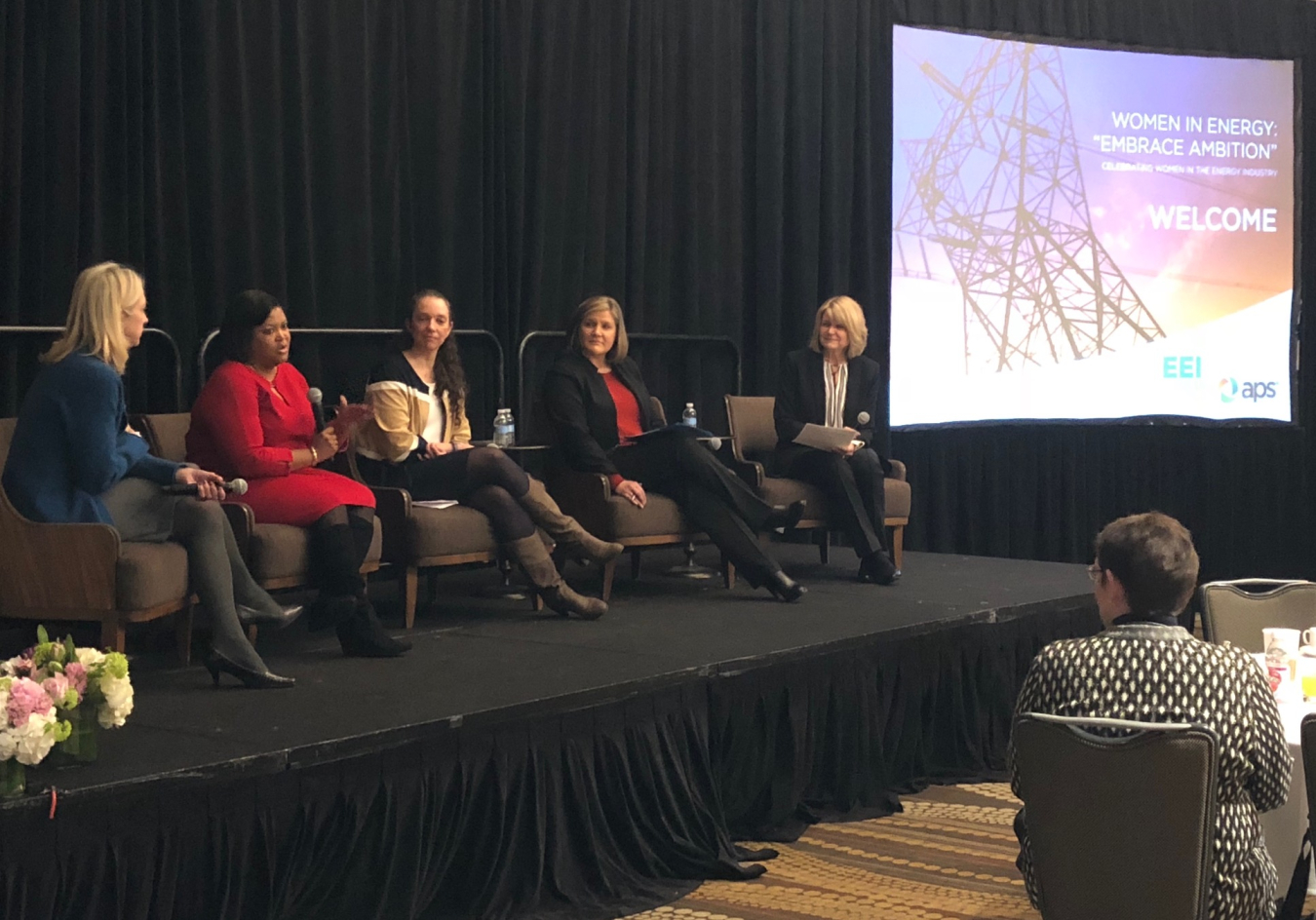We all must encourage women to develop careers in science, technology, engineering, and mathematics (STEM).
March 14, 2018With March recognizing Women’s History, I would like to take a moment and recognize the contributions women have and are making in the energy sector. One such pioneer was Edith Clarke (1883-1959) who advanced electrical engineering concepts and invented the Clarke calculator. Today, we need leaders more than ever. Energy development and security are critical to our economic development and prosperity. Protecting the Nation’s critical energy infrastructure from all hazards, especially cybersecurity, requires bright, committed people who are passionate about driving innovation.
We all must encourage women to develop careers in science, technology, engineering, and mathematics (STEM). Bringing people together, raising awareness of the importance of STEM, and providing support and opportunities to those interested in moving into professional careers are vital activities being pursued by numerous organizations around the country.
Over the years, I’ve had the pleasure and honor of speaking at events hosted by some of the organizations promoting STEM within the energy workforce. While there are so many more women pursuing careers in engineering and other STEM fields now than there were when I was in college, that growth must continue to be promoted at every juncture, beginning in elementary school. Girls must learn from their teachers, families, schools, friends, and others that they have the talent and ability to pursue the most challenging fields in science, technology, engineering and mathematics.

In Feburary during the National Association of Regulatory Utility Commissioners Winter Summit here in Washington, DC, I talked about some of the lessons that I’ve learned during my career at a “Women in Energy: Embrace Ambition” event celebrating the advancement of women in leadership positions in the energy industry. I joined Ellen Nowak, Chair of the Public Service Commission of Wisconsin; Katrina McMurrian, Executive Director of the Critical Consumer Issues Forum; and Colette Honorable, Commissioner Emeritus of Federal Energy Regulatory Commission.
Here at the Department of Energy, our mission depends on the minds and talents of everyone working across DOE’s National Labs, sites, and offices. To that end, as a Department, we are investing in STEM outreach and our future STEM workforce. To learn more about the Department’s coordinated national platform called STEM Rising, visit energy.gov. Also, be sure to check out the Women @ Energy Series (www.energy.gov/womeninstem) which has more than 300 profiles of women in STEM at Energy, their personal stories of what drew them to a STEM career, their tips for others looking to enter their field of work, and advice for engaging underrepresented communities in STEM fields.
Patricia A. Hoffman

Acting Assistant Secretary, Principal Deputy Assistant Secretary, Office of Electricity
Former Principal Deputy Assistant Secretary for the Office of Electricity (OE) at the U.S. Department of Energy (DOE), Ms. Patricia A. Hoffman also served as Acting Under Secretary for Science and Energy from January 2017 until November 2017 when the U.S. Senate confirmed Mark Menezes as Under Secretary of Energy. Ms. Hoffman served as Acting Assistant Secretary for OE from January 2017 until October 2017 when the OE Assistant Secretary was confirmed by the U.S. Senate.
Ms. Hoffman was named Assistant Secretary for OE from June 2010 to January 2017, after serving as Principal Deputy Assistant Secretary since November 2007. The focus of her responsibility was to provide leadership on a national level to modernize the electric grid, enhance the security and reliability of the energy infrastructure and facilitate recovery from disruptions to the energy supply both domestically and internationally. This is critical to meeting the Nation’s growing demand for reliable electricity by overcoming the challenges of our Nation’s aging electricity transmission and distribution system and addressing the vulnerabilities in our energy supply chain.
Prior to her this position, Ms. Hoffman served in a dual capacity as Deputy Assistant Secretary (DAS) for Research and Development (R&D) and Chief Operating Officer (COO) within OE. During her tenure as the DAS for R&D, she developed the long-term research strategy and improved the management portfolio of research programs for modernizing and improving the resiliency of the electric grid. This included developing and implementing sensors and operational tools for wide-area monitoring, energy storage research and demonstration, and the development of advanced conductors to increase the capacity and flexibility of the grid. She also initiated a new research effort focused on integrating and distributing renewable energy through the electric grid, such as promoting plug-in hybrid electric vehicles and implementing smart grid technologies to maintain system reliability. As COO, she managed the OE business operations, including human resources, budget development, financial execution, and performance management.
Prior to joining OE, she was the Program Manager for the Federal Energy Management Program within the Office of Energy Efficiency and Renewable Energy at DOE. This program guides the Federal government to “lead by example” promoting energy efficiency, renewable energy, and smart energy management. Complementing her building energy efficiency experience, she also was the Program Manager for the Distributed Energy Program, which conducted research on advanced natural gas power generation and combined heat and power systems. Her accomplishments included the successful completion of the Advanced Turbine System program resulting in a high-efficiency industrial gas turbine power generation product.
Ms. Hoffman holds a Bachelor of Science and a Master of Science in Ceramic Science and Engineering from Pennsylvania State University.

